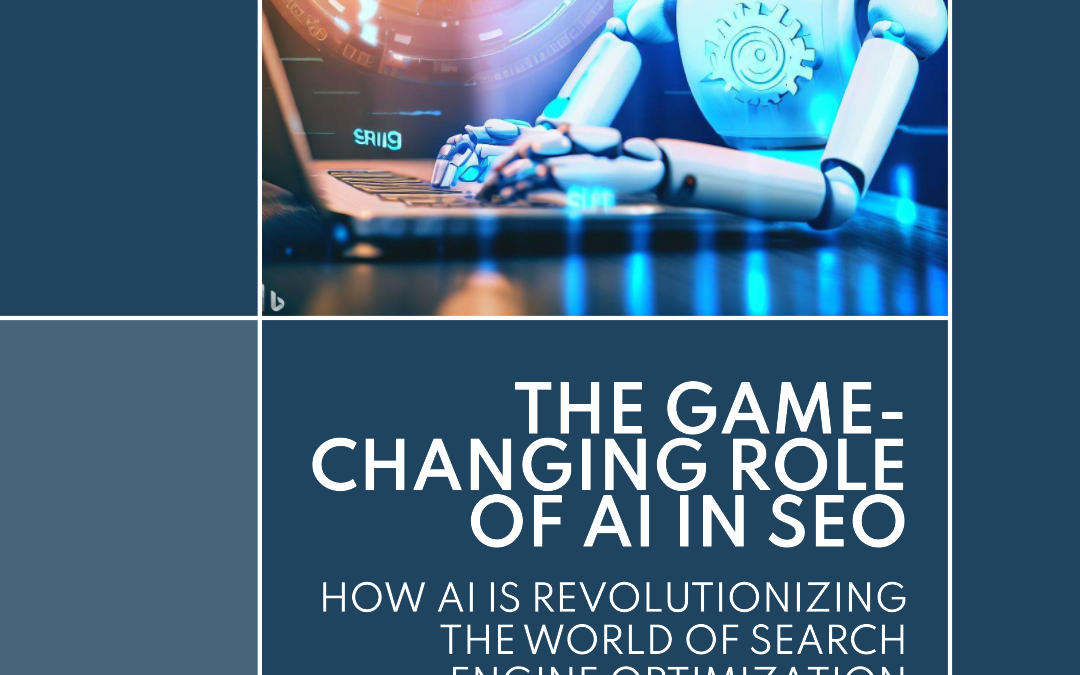Introduction
In today’s fast-paced digital world, the advent of artificial intelligence (AI) has revolutionized numerous industries, and the world of online marketing is no exception. In this blog post, we will delve into the remarkable impact that AI has had on Search Engine Optimization (SEO) and Search Engine Marketing (SEM). With the rise of AI-driven algorithms and tools, businesses have been able to enhance their online visibility, engage with their target audience more effectively, and optimize their marketing strategies like never before. Join us as we explore the ways in which AI has reshaped the landscape of SEO and SEM, and discover the incredible possibilities it brings to the table.
Section 1: AI’s Game-Changing Role in SEO
AI-Driven Content Creation and Optimization
One of the most significant ways AI has transformed SEO is through its ability to revolutionize content creation and optimization. AI-powered content generation tools have become increasingly sophisticated, capable of producing high-quality, relevant, and engaging content at scale. This has been a game-changer for marketers, as it allows them to cater to their audience’s needs with personalized content while adhering to SEO best practices.
Moreover, AI algorithms can analyze vast amounts of data to identify keywords, search trends, and user intent, enabling businesses to optimize their content for higher search engine rankings. AI-driven SEO tools can also evaluate competitor strategies, providing valuable insights to help marketers stay ahead in the ever-competitive online landscape.
User Experience Enhancement
User experience is a crucial factor in SEO, and AI plays a vital role in elevating it to new heights. AI algorithms can analyze user behavior and interactions on websites, identifying patterns that may lead to higher bounce rates or lower conversion rates. Armed with this knowledge, businesses can make data-driven decisions to improve their websites’ user experience, ultimately leading to better SEO rankings.
For instance, AI-powered chatbots have transformed customer support, providing real-time assistance and resolving queries promptly. This not only enhances user satisfaction but also signals search engines that the website is delivering value, positively impacting SEO rankings.
Section 2: The AI-SEM Nexus: Amplifying Advertising Efficiency
Precision Targeting with AI
In the world of SEM, AI has unlocked new levels of precision targeting. Traditional advertising methods often resulted in inefficiencies and wasted ad spend, but AI algorithms can now analyze user data to identify the most relevant audiences for specific ad campaigns. This enables businesses to allocate their advertising budget more efficiently, reaching the right people at the right time with the right message.
Moreover, AI-driven predictive analytics can anticipate user behavior and buying patterns, enabling businesses to adjust their SEM strategies accordingly. This proactive approach minimizes ad spend on ineffective campaigns and maximizes ROI.
Automated Bid Management
AI has brought a revolution to bid management in SEM. Manual bid management was time-consuming and often led to suboptimal results. With AI-powered bid management tools, businesses can automate the process of adjusting bids based on various factors like competition, keyword performance, and conversion rates.
By employing machine learning algorithms, these tools continuously refine their bidding strategies, ensuring that advertisers get the most out of their SEM investments. This dynamic bid management process enables businesses to stay competitive in the ever-changing landscape of online advertising.
Section 3: Embracing the Future of AI in SEO and SEM
Voice Search and Natural Language Processing
As AI-powered voice assistants like Siri, Alexa, and Google Assistant have become more prevalent, voice search has emerged as a critical trend impacting SEO and SEM. Voice searches tend to be more conversational and longer, reflecting the way people speak. As a result, businesses need to optimize their content and advertising strategies to match the nuances of natural language.
AI-driven natural language processing (NLP) plays a vital role in understanding and responding to voice queries accurately. By implementing NLP-powered SEO and SEM strategies, businesses can capitalize on the growing popularity of voice search and cater to the needs of their audience effectively.
AI-Generated Recommendations
AI’s influence on SEO and SEM goes beyond content creation and advertising. AI-generated recommendations have become integral to enhancing user experiences. By analyzing user behavior and preferences, AI algorithms can suggest personalized content, products, or services, thereby increasing user engagement and conversion rates.
For instance, e-commerce platforms leverage AI to recommend products based on previous purchases or browsing history. This not only improves customer satisfaction but also boosts sales, making it a win-win situation for businesses and consumers alike.
Conclusion
As we navigate the ever-evolving landscape of digital marketing, AI continues to be a transformative force in SEO and SEM. From enhancing content creation and user experience to optimizing advertising strategies and embracing voice search, AI’s impact is far-reaching and profound. Businesses that harness the power of AI-driven tools and algorithms are poised to unlock unparalleled growth and success in the competitive online realm. Embrace the power of AI today, and discover a world of possibilities for your SEO and SEM endeavors.
